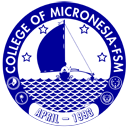ACCJC Shares White Paper on Student Return on Investment (ROI) and the Value Landscape in Higher Education
SACRAMENTO, CA – The Accrediting Commission for Community and Junior Colleges (ACCJC) is pleased to share Navigating the Value Landscape for Accreditation a white paper analyzing current initiatives that evaluate the value of college education and its long-term return on investment for students.
Last week, ACCJC announced the award of a $400,000 grant from College Futures Foundation to advance its Transparency, Storytelling, and Value Literacy Project launched this fall and plans to develop a student return on investment (ROI) and social mobility metric or set of metrics that can be used in accreditation processes. To that end, ACCJC staff researched and analyzed a set of existing post-completion metrics used in the United States and engaged in a series of exploratory conversations with institutional leaders, foundations, think tanks, state agencies, and federal policy leaders to explore the strengths and weaknesses of existing measures. Navigating the Value Landscape for Accreditation is the culmination of this exploration, offering a summary and analysis of each measure and recommending a set of metrics and potential enhancements to existing metrics for use by ACCJC member institutions.
“While this white paper was developed as part of our efforts to support ACCJC member institutions in their evaluation of students’ post-graduation economic outcomes and social mobility, we think its relevance extends beyond our members,” said ACCJC President Dr. Mac Powell. “The public, educators, policymakers, and students need to have easily available data to make informed decisions about higher education and its value, incorporating a reasonable post-enrollment metric into institutional reflection and accreditation processes can assist institutions in capturing and sharing that data.”
Accreditation critic Dr. Paul Gaston, III, author of Higher Education Accreditation: How It's Changing, Why It Must and most recently Rebuilding Support for Higher Education shares, “Reflecting on thorough and objective documentation, Navigating the Value Landscape for Accreditation reinforces the recognition that community colleges are both the United States’ historic contribution to higher education and its singular asset in a challenging economy. Prominent among the many virtues of community colleges has been their responsiveness to the increasing diversity of their students, to the proliferation of learning methods, and to the widening range of opportunities. Through providing leadership in quality assurance and institutional improvement, ACCJC has become a bellwether in accreditation and a critical ally of its member institutions. The well-chosen metrics explained in this enhance our understanding of and appreciation for the leadership of ACCJC.”
ACCJC Commission Chair, Dr. Kathleen Burke, shared, “A key takeaway from the development of this white paper is that there is a significant demand from federal policy leaders for such a metric to reinforce the value of higher education.” Additionally, “An effective metric can support institutional decision making to continue to expand the value proposition for all students.” There is almost universal support for a value metric, and this white paper explores the reality of the current federal, state, and private data sets to thoroughly address the value question. As readers will note, there is a wide variety of data and data sources available to institutions and the public that provide valuable insights, but all have clear limitations.
Dr. Claude Pressnell, Jr., Retired President of the Tennessee Independent Colleges and Universities Association shares, “This white paper serves as an incredible contribution to the broader discussion of the value of college. It is objective in its analysis of the available data sets being used to make high-stakes judgements on post-secondary programs and remains disciplined in its commitment to considering lifetime benefits of completing such programs. The white paper will serve as a foundation for future conversations."
Dr. Tia McNair, Partner at Sova shared, “ACCJC's efforts to expand and to enhance resources and tools that promote continuous improvement, capacity-building, and transparency around the value of higher education demonstrate a deep commitment to centering equity and excellence as institutions educate the most diverse learners in our nation’s history.”
Due to the limitations of current federal, state, and private data systems, it is clear that accreditors need to partner with institutions, federal agencies, and state systems, to elevate the importance of value, with an ultimate goal of connecting these metrics in public-facing, easy-to-understand dashboards.
“I am excited about the possibilities that will come from these partnerships and believe this is a unique opportunity for two-year institutions to take the lead on communicating the value of higher education and restoring public support and confidence in our systems. Together we can further develop a reasonable and actionable metric or set of metrics, so institutions can better evaluate and improve their offerings, and so students can make informed decisions about where they invest their time and money in pursuit of their educational goals,” said President Powell.
For more information about ACCJC and its Transparency, Storytelling, and Value Literacy Project, visitwww.accjc.org.
# # #
The Accrediting Commission for Community and Junior Colleges (ACCJC) is a federally recognized accrediting commission whose institutional accreditation is accepted as a reliable assurance of quality, allowing institutions of higher education access to federal financial aid. ACCJC is unique in its concentration on public and private two-year degree granting institutions, its geographic range, and its membership. Its current (2024) 137 public, non-profit, and for-profit member institutions span California, Hawai'i, New York, and the western Pacific and include the largest public higher education system in the US, serving 2 million students, and one of the nation’s smallest colleges, with 28 students.
ACCJC supports its member institutions to advance educational quality and student learning and achievement. This collaboration fosters institutional excellence and continuous improvement through innovation, self-analysis, peer review, and application of standards. To learn more, visit www.accjc.org.
